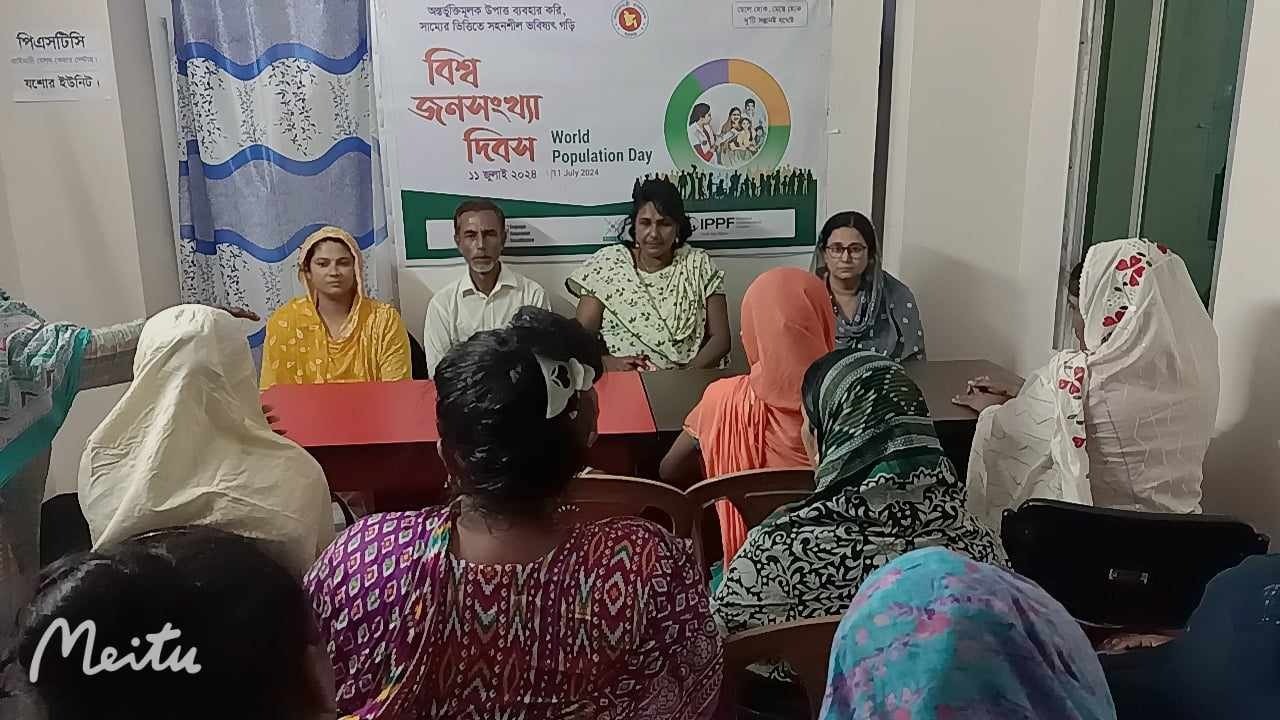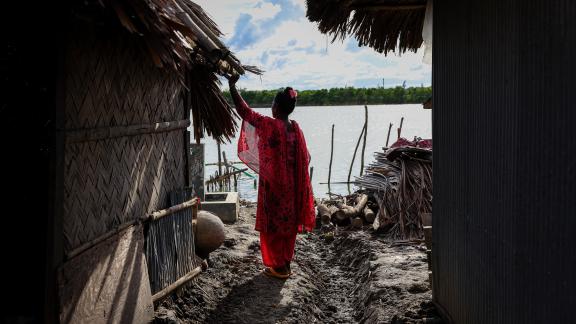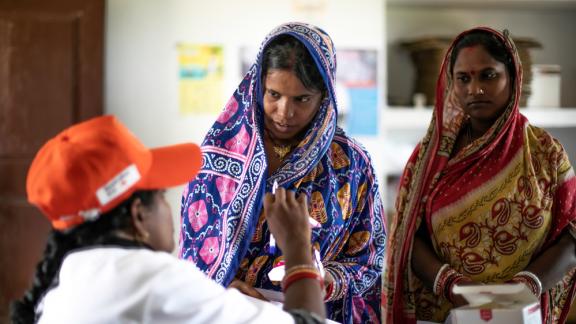Over the years, the female sex workers of Bangladesh have seen the landscape of their profession change significantly. From derogatory labels in the pre-colonial and colonial times to now being legally recognized as sex workers. However, their legal recognition and rights only exist on paper. Sex workers in Bangladesh have little to no access to social, economic and legal resources.
In Bangladesh, sex work is partially criminalized. While selling sex in private is legal, publicly soliciting clients and procuring sex workers remains illegal. Third party involvement i.e., the importing, exporting, hiring or selling women for sex work by pimps is a criminal offense. However, paying for sex itself is not against the law. This legal ambiguity, in addition to vagrancy laws, leave sex workers in the country vulnerable to harassment and prosecution.
Zoya, who is the founder of Bonchita, a brothel-based sex workers collective, and a community volunteer of the Population Services and Training Centre (PSTC) in Bangladesh, says “The presence of 110 brothels has now shrunk to 11." This could be linked to the rule which demands the brothels to obtain an affidavit for police verification, which has been put into place to prevent trafficking.
Sex trafficking remains a pervasive issue not just in Bangladesh, but in South Asia - driven by poverty, gender inequality, weak law enforcement, and cross-border vulnerabilities. Women and children are frequently trafficked not just within Bangladesh, but across borders to India, Nepal, and other neighbouring countries. Trafficked persons are often lured with false promises of employment or marriage, only to be forced into sex work.
In addition to legal barriers, sex workers in Bangladesh like in many other South Asian countries, face social exclusion because of perceptions rooted in religious and patriarchal beliefs. Zoya, who is a #GotToBreakFree activist, has been vocally advocating for dismantling the endless cycle of violence against sex workers and their families, that has persisted regardless of political or social shifts, The children of female sex workers in Bangladesh go to schools, to break the cycle of generational stigma and poverty, but they too are discriminated against and excluded, by other students and often by school authorities as well.
Zoya firmly states that “the nation has not yet accepted sex workers as equal citizens”. This exclusion takes different forms. For example, sex workers cannot organise publicly on the streets. The now existing brothels are also all constantly on the verge of demolition and their closure means many sex workers will be forced into street-based and hotel-based sex work, further exposing them to violence, discrimination and exploitation from intermediaries. “The sex workers in Bangladesh, especially women, are stuck in an endless cycle of lifelong violence – violence from the state, society and at our workplace. Our consent is taken for granted and violence is an everyday reality for us.” she adds.
when
country
Bangladesh
region
South Asia
Subject
Sex Workers

If I do not ensure my sexual well-being, I would not be able to earn a livelihood. I need access to health services and treatment. - Zoya, founder of Bonchita, a brothel-based sex workers collective

The IPPF policy on sex work defines ‘sex work’ as the provision of sexual services by and between consenting adults for some form of remuneration, with the terms agreed between the parties. While the legal recognition of sex work in Bangladesh was a step forward, it introduced new challenges, particularly for brothel-based sex workers. One of the most pressing issues is the widening wage gap. As sex work became a recognized profession in the country, people from different social groups started engaging in sex work by choice, deepening economic disparities. Zoya notes “for people from more privileged backgrounds, sex work is just work, but for us, it is not”, underlining the attacks on these women’s agency that happens due to their social and economic status.
Healthcare access remains another critical challenge. Many sex workers struggle to receive medical care due to financial constraints and systemic neglect. The IPPF Sex Work Policy Paper highlights widespread discrimination by healthcare providers, mandatory HIV testing without consent, and lack of integrated healthcare services. Criminalization of drug use further marginalizes those who engage in sex work and use substances, pushing them into unsafe environments where access to healthcare is even more restricted.
Zoya underscores the urgency of healthcare access, saying, “If I do not ensure my sexual well-being, I would not be able to earn a livelihood. I need access to health services and treatment.” This stark reality makes the presence of accessible, stigma-free healthcare facilities all the more vital. To bridge this gap in sex workers' access to essential sexual and reproductive healthcare, Zoya became a vital community advocate, shaping and guiding PSTC’s work with Bangladesh’s sex worker community.
A significant challenge to the sexual wellbeing of the brothel-based sex workers in Bangladesh is the nature of relationships between sex workers and their Babus—trusted male partners who provide emotional and financial support. Many sex workers perceive these relationships as safe, unaware that Babus often have multiple partners, increasing the risk of STI and HIV transmission. Awareness programs that encourage consistent condom use, even within intimate relationships, are essential. Dr Noor Mohammad, the Executive Director of PSTC notes, “The complex dynamics of sex workers’ relationships with Babus highlight a crucial gap in existing HIV prevention strategies. PSTC has been actively working to bridge this gap by introducing peer-led education models where sex workers like Zoya are involved in Life Skills Education sessions which include trainings on ‘negotiation skills’ for the consistent use of condom during sex."

Zoya and members of Bonchita at the PSTC clinic.
PSTCIn January 2024, PSTC established a dedicated clinic under its FOCUS project in collaboration with the IPPF in Jashore Sadar. Designed specifically to serve the SRH needs of female sex workers and their families, this clinic is more than just a medical facility - it is a lifeline. By recognizing the unique needs of female sex workers (FSW) and their families, this initiative is not only improving health outcomes but also challenging the deep-rooted stigma that has kept so many in the shadows. As more communities look for inclusive healthcare solutions, this clinic stands as a model for what is possible when healthcare is made truly accessible, judgment-free, and community-driven.
From its inception, the clinic has consistently provided reproductive health services including counselling to the FSW community. As of now, a total of over 2,200 FSWs have been served.
Zoya reiterates that the only way to fully ensure agency and protection of the sex worker community going forward is through skill building, counselling and providing legal protection and services where required. Through our partner PSTC in Bangladesh, IPPF advocates for the sexual and reproductive well-being of sex workers through inclusive service delivery and standing up for the for the rights of sex workers. "Empowerment of sex workers requires a multi-faceted approach. Beyond access to healthcare, legal support, and advocacy, skill-building initiatives are critical. PSTC remains committed to such holistic interventions, ensuring that the dignity, and well-being of all people are at the core of our efforts”, Dr Noor highlights.
This article was written by Reshma Narayan, Regional Director's Secretariat, with inputs from Faisal Shabbir, Architect of Cooperation, at the International Planned Parenthood Federation South Asia Region











